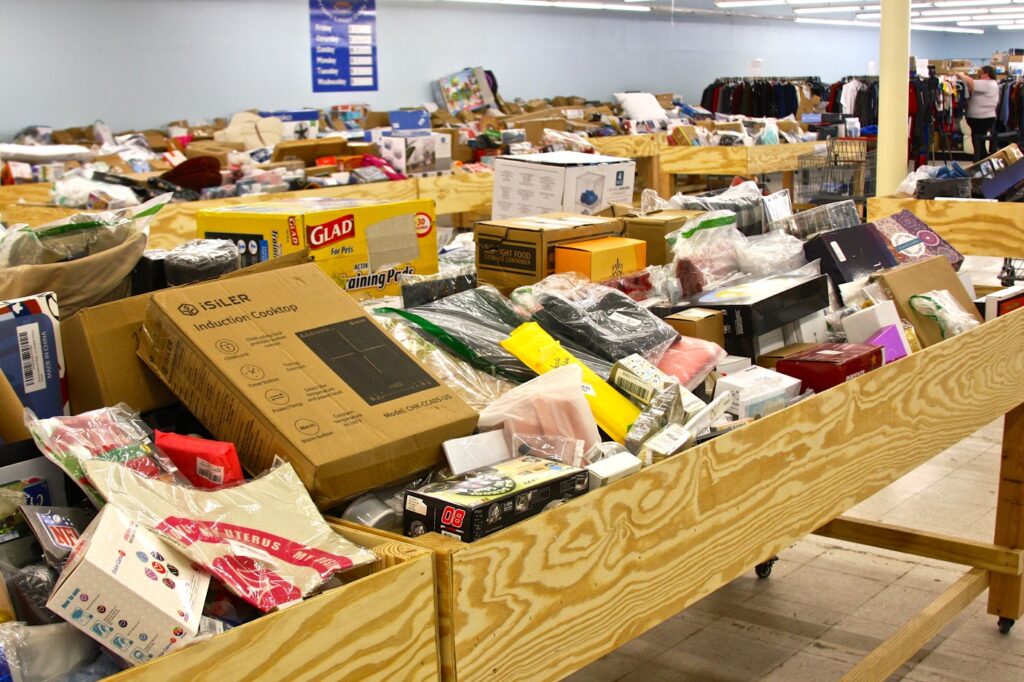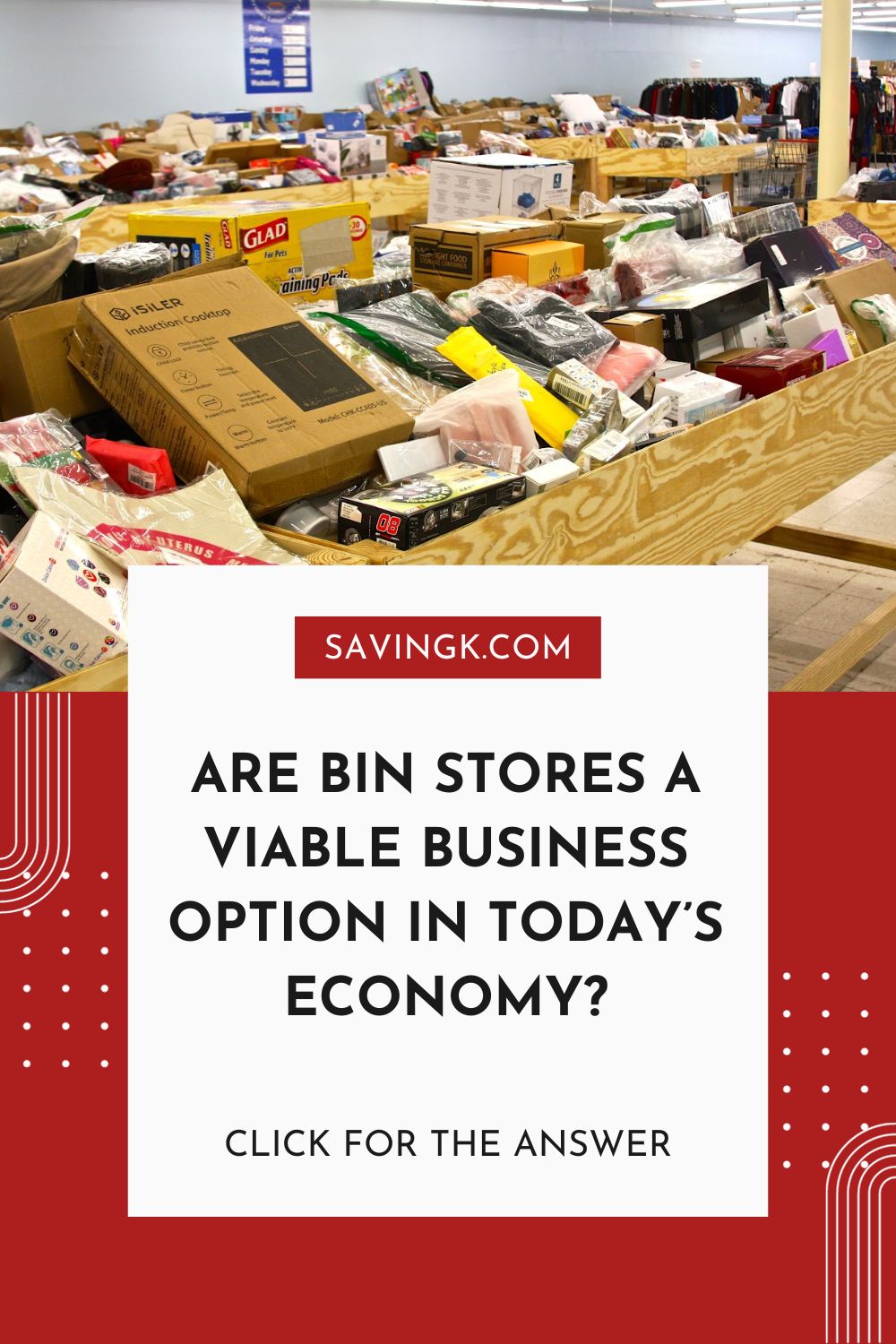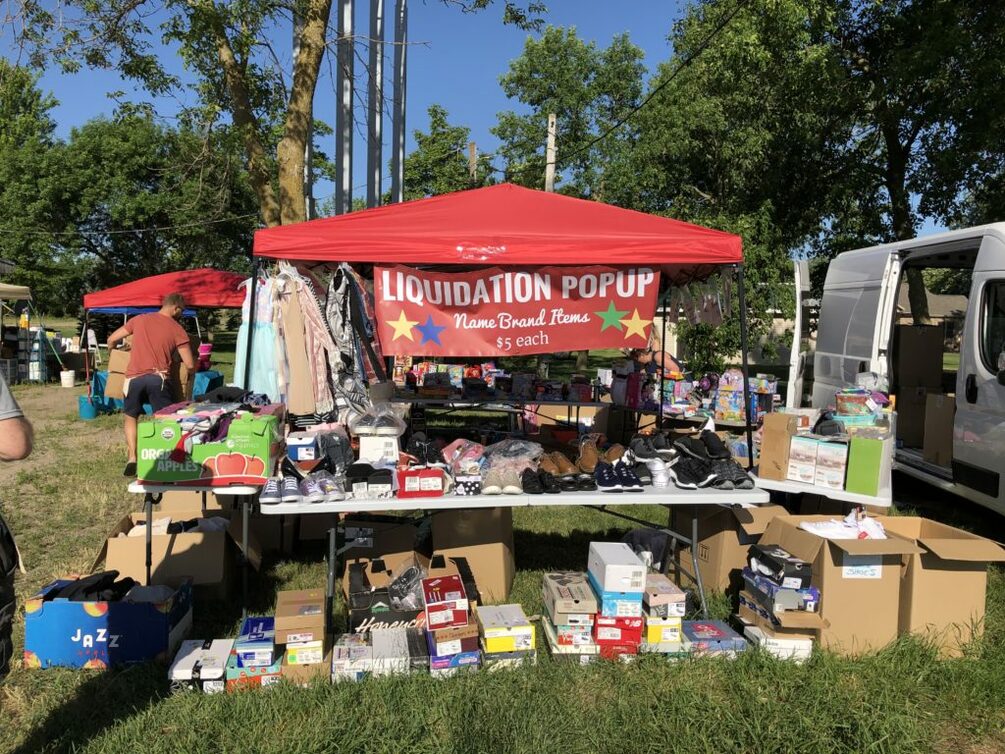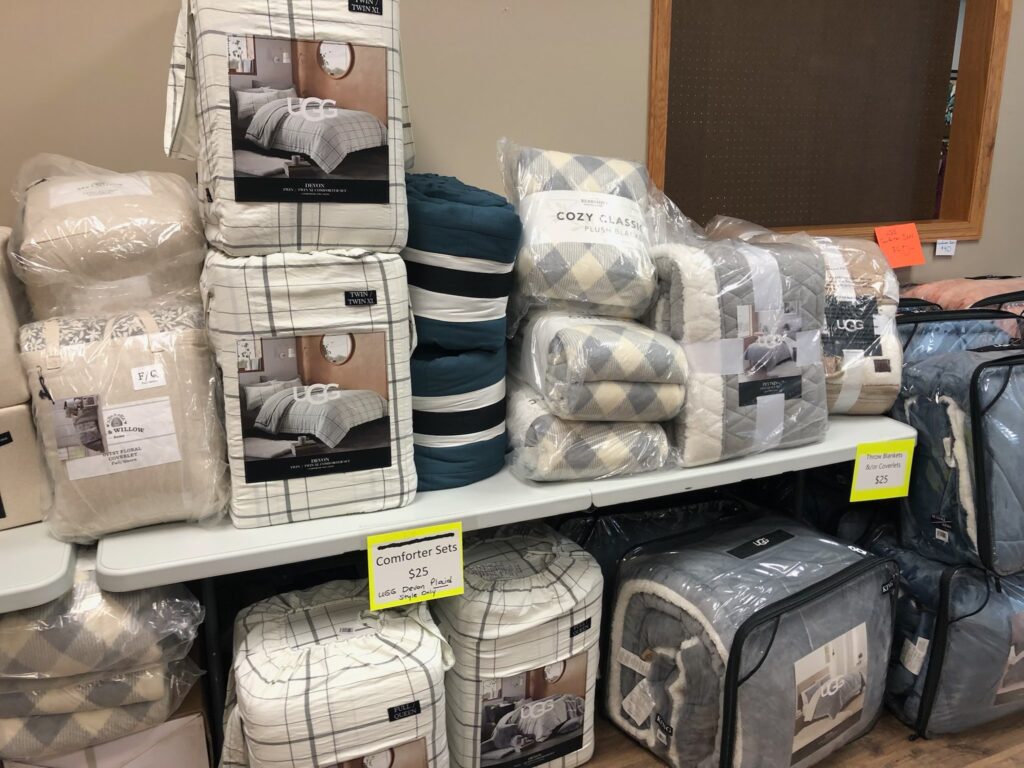
In the entrepreneurial world, bin stores have emerged as a topic of contention regarding their viability as a standalone business. These stores, known for selling overstocked or liquidated goods at steep discounts in large bins, have gained popularity among bargain hunters. However, the question remains: can they be profitable on their own? Are bin stores a viable business option in today’s economy?
Contents
What is a Bin Store?
Before we answer the question of whether or not a bin store is a viable business plan, let’s first define exactly what a bin store is.
A bin store, also known as a bargain bin store or Amazon bin store, is a retail establishment that specializes in selling merchandise at deeply discounted prices. The items in these stores are typically presented in large bins, which customers can rummage through to find products they wish to purchase. Here’s a more detailed look at the concept:
Concept and Layout
- Merchandise Bins: The store is usually laid out with large bins or containers filled with various items. These bins are often categorized by product type or price.
- Diverse Inventory: The inventory can include overstock, returned, refurbished, damaged box items or liquidated products from various retailers or wholesalers.
- Dynamic Pricing: Many bin stores operate on a pricing model that decreases over the week. For instance, items might start at a higher price point on the weekend and then reduce in price as the week progresses to clear out inventory.
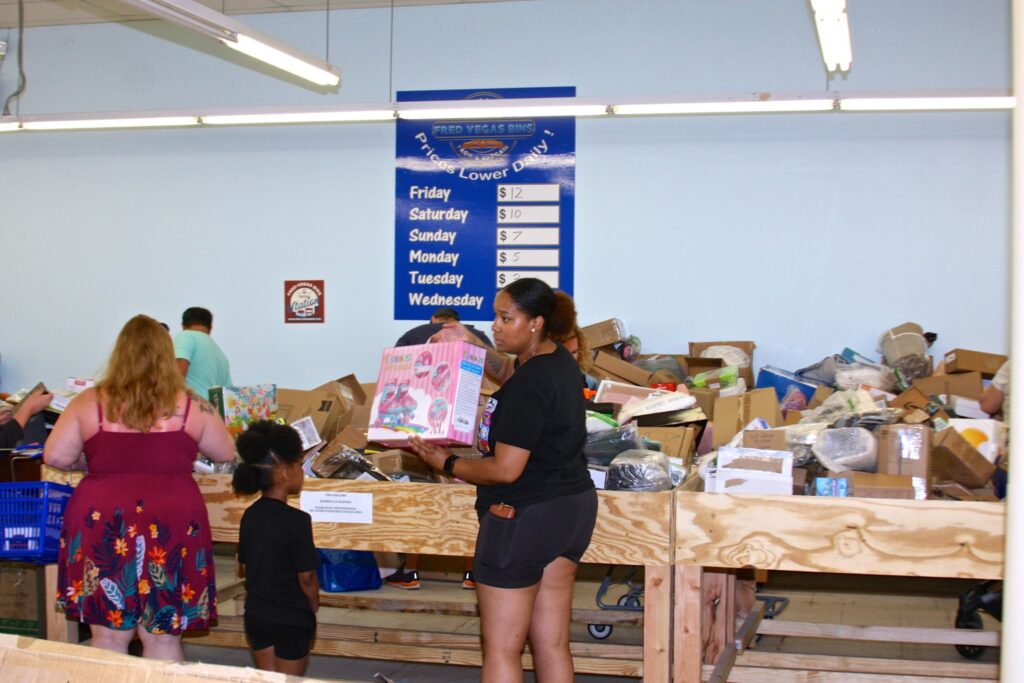
Product Sourcing
- Bin stores typically acquire their inventory from liquidation brokers that sell Amazon liquidation and Target salvage, overstock from larger retailers, or direct from manufacturers, such as Macy’s liquidation, looking to unload unsold goods.
- The products can range from electronics, toys, clothing, home goods, to almost any consumer product that can be sold at a discount.
Business Model
- The business model relies on high-volume sales with low profit margins per item. The idea is to sell a large quantity of items quickly.
- Customers are attracted to the treasure-hunt experience, never knowing what they might find on a given day, which can lead to repeat visits.
Customer Experience
- Shopping in a bin store is often seen as a treasure hunt, where customers dig through the bins to find items of interest.
- The experience is gamified by the ever-changing inventory and the thrill of finding a high-value item for a low price.
Are Bin Stores A Viable Business?
The answer is nuanced. While bin stores can indeed drive foot traffic and create a buzz among consumers, their success is not guaranteed. It hinges on several critical factors, such as strategic location and the ability to source appealing inventory. Aspiring owners are advised to embark on a learning journey, visiting multiple bin stores to understand the intricacies of this unique business model.
Financially, bin stores present a challenge. They require a substantial initial investment in inventory, with the added risk of no assured sales. This business is not for the faint-hearted—it demands weekly dedication and hard work, with profitability being a variable outcome. Some entrepreneurs find bin stores to be lucrative, while others equate them to a gamble where the profit margins are too thin unless supplemented by a higher-margin sales channel.
We took a poll of the members in the Bin Store & Truckload Buyers Co-Op Facebook group to get first hand responses from the front line.
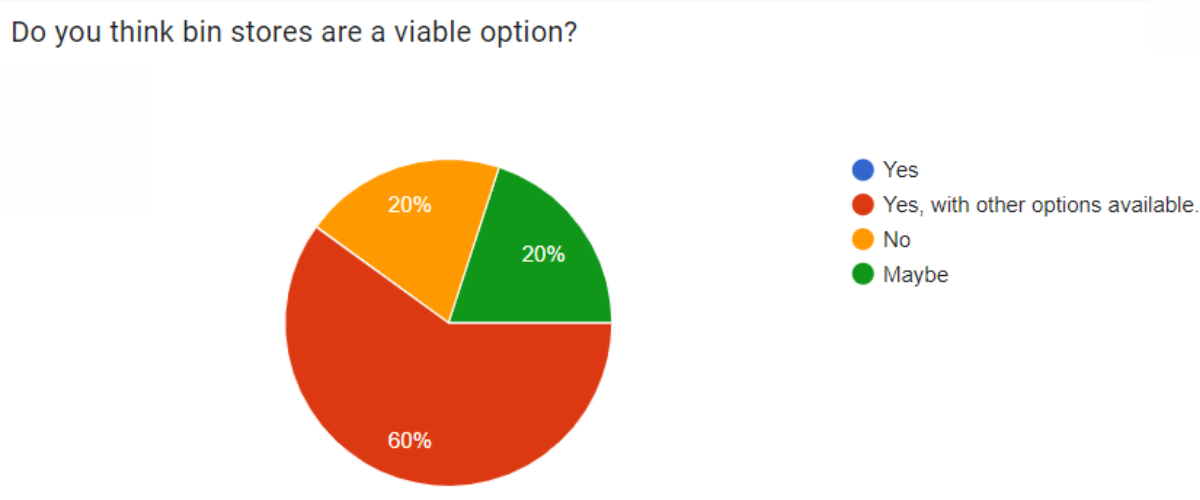
Based on the summary that AI extracted from the questionnaire, here are the key points on the viability of bin stores:
- The success of bin stores is a subject of debate, with some arguing that they can only break even and require additional income from liquidation sales.
- It’s essential to conduct thorough research, minimize costs, purchase from reliable sources, and heed the advice of industry experts.
- While bin stores can attract customers, their success heavily relies on location and the ability to source quality inventory.
- Prospective owners should visit various bin stores to gain a comprehensive understanding of the business model.
- Bin stores necessitate significant upfront cash flow for inventory purchases, with no guarantee of sales, and involve consistent hard work.
- The profitability of bin stores varies; some find them highly profitable, while others see them as a risky venture.
- Profit margins can be slim unless paired with a high-margin sales channel.
- Bin stores should be considered as an outlet for excess inventory in conjunction with more profitable sales channels.
- They require continuous, large inventory purchases and constant effort.
- Without preparation for substantial, risky inventory investments and ongoing work, bin stores may not be a viable option.
So the Answer is: Yes, But…
While bin stores can be a viable business option, they should not be the sole focus for entrepreneurs. They work best when integrated into a broader business strategy that includes more predictable and profitable sales channels. Entrepreneurs considering this path should be prepared for the high-risk, high-reward nature of the business and enter the market with eyes wide open and cash reserves at the ready.
Bin Store Challenges
- Inventory management can be challenging, as the stock is constantly changing and can be unpredictable.
- Maintaining a clean and organized store environment can be difficult due to the nature of customers rummaging through bins.
Viability
- Bin stores can be viable businesses if managed well, with a good understanding of inventory sourcing, pricing strategies, and customer engagement.
- They often appeal to bargain hunters and discount shoppers, providing a steady stream of customers looking for deals.
In summary, bin stores offer a unique shopping experience focused on discounted items sold in a “dig and find” environment. While they can be profitable, success in this retail niche requires careful planning, a keen eye for sourcing products, and an ability to manage the high turnover of inventory.
Tips For A Successful Bin Store
Here are some tips for running a successful bin store from some leaders in the space:
Experts in the field, like Damian Polak of Nice Find Wholesale, caution that bin stores are enjoyable but tough. They necessitate a robust financial buffer to survive the inevitable ebb and flow of retail. Polak’s advice is to research thoroughly and visit existing stores to shed any illusions about the business being an easy venture. Here’s what Damian had to say on the subject:
Bin stores are a great option for retailers with multiple streams of income in their location. Bin stores drive a crazy amount of traffic, but are also very hard to run, and their success mostly depends on the location and the inventory that they are able to purchase.
Do your research! Hop into a car or a plane and visit multiple stores on multiple days and try to connect with different owners. Bin stores are a TON of work, and you have to do the work WEEKLY, it does not stop. Bin stores are also a huge cash flow business, so if you are not prepared to put up $10,000-$50,000 in inventory weekly, with the potential of not making it back that week, this business is not for you! Cash is needed to purchase inventory up front and not every week will be profitable. You need to have enough cash to weather some bad storms.
Bin stores are a fun business, that if done right can be profitable, but it is a very tough business, and a huge gamble every week. If you are not prepared for it, and you think its as easy as dumping random items into the bins and tripling your money – you are in for a huge surprise!
Chubby Bargain Bins recommends, “Research everything. Keep all costs down, including rent. Growth is slow and listen to those in the industry. Only buy from people you have made relations with. A bin store only will not work. You must have liquidation to supplement income. A bin store only will just break even.”
T Alex Gabriel who owns DiscountDash.com offered similar advice: “Have lots of funds, big space and variety. Bin stores are not for everyone. If you do not like hard work, its not for you. There are a lot of moving parts, and it’s not as easy as it seems, but very profitable if you do it right.”
We also got more advice from another liquidation store owner/broker who chose to remain anonymous: “Starting a bin store with one load is not gonna work. You need multiple streams of income including a half off section. Understand it’s not dumping one time a week. You must have loads for day one and day five. The cost of merchandise keeps going up. The total amount of bin stores keeps rising. People don’t understand the real process and under capitalize themselves.”
Zack Kram from Freedom Wholesale also offers some great advice: “Focus on your high margin sales channels and use the bins as an outlet to move the rest of the product. The margins are too low without a higher margin sales channel.”
Kim Lohrberg, owner of SavingK (who also talks about herself in third person once in awhile) has several eggs in her basket and agrees with Zack about the focusing on high margin sales. Besides running this very blog using her affiliate marketing skills, she also buys liquidation truckloads to sell items via Amazon FBA. She is in the top 5% of third-party sellers on Amazon and rising on Walmart Marketplace. What she can’t sell on Amazon or Walmart (or is returned), she then sells at her liquidation boutique. And lastly, she has Liquidation Popup sales every 4-6 weeks to move leftover inventory which is a similar to a bin store sale, but only occurs sporadically.
Conclusion
In conclusion, bin stores represent a unique facet of the retail landscape, offering a blend of excitement and value to consumers and a challenging yet potentially rewarding venture for entrepreneurs. Success in this arena requires a strategic approach to inventory sourcing, pricing, and customer engagement. While bin stores can indeed be a viable business, they thrive best as part of a diversified strategy, complementing other sales channels. Entrepreneurs willing to invest the necessary time, effort, and resources, and who are prepared to navigate the ebbs and flows of the discount retail market, can find themselves at the helm of a thriving bin store business. Remember, in the world of bin stores, variety isn’t just the spice of life—it’s the cornerstone of success.
- Featured Speaker at the Stonecraft Christian Women’s Connection - April 20, 2024
- Tips For Penny Shopping Including What Stores Offer Penny Items - April 17, 2024
- How To Become A Side Hustle Queen - April 11, 2024
